When coming home is a bit of a mixed blessing
I spent most of last week at Hollins University in Roanoke, Virginia, for the Tinker Mountain Writers’ Workshop. I had an amazing time, and I got so much done. With the help of my instructor, Kristin Dombek, I solved a lingering problem with an essay about the Finger Lakes Flood of 1935 and stuck it in my “done-for-now” file. I re-read Jo Ann Beard’s “The Fourth State of Matter” (and cried again), and also Vivian Gornick’s The Situation and the Story, which I needed more than I knew. Not only did it help me fix the 1935 piece, but also it gave me insight into structuring the one currently in progress. I even figured out the framework for the after that. Hard to argue with those results! I’m so grateful for all the folks at Hollins, for Kristin, for our cohort of five in the nonfiction tutorial, for my son who took care of the house and pets, and for South Arts awarding the grant that lets me do these things.
Then, on the way home, I got stuck in traffic. Then my foot started to hurt for no apparent reason. It is currently swelled up like a pufferfish, again, for no apparent reason.1
Then, it started to rain.
In the days and weeks following the 2022 eastern Kentucky flood, I could not stand the sound of rain. While that has improved significantly over the past three years, today it rained so much that I found myself wanting to yell out the window “stop it, already!” just as I’d been tempted to do in late July and early August 2022.
Instead, I turned my attention to the columns. I sorted an envelope from 1994 and another from 1999, then scanned in the first 3 months of 1994. By the time I was done, the rain had let up for a while. I let Nino out to do his business and soak up that mysterious stranger, the sun. I must admit it’s lovely to be back with him and the cats, and also to not be sleeping in a twin bed in a dorm where the bathroom lies at the far end of a fluorescent-lit sickly yellow hall.
Anyway. I chose this week’s installment of “Rural Reflections,” sadly undated, because I was looking for something about my grandparents’ trips to Virginia since that’s where I’d just been. That’s in there too, but just in passing. Ultimately this column won out because, well, you're about to see why.
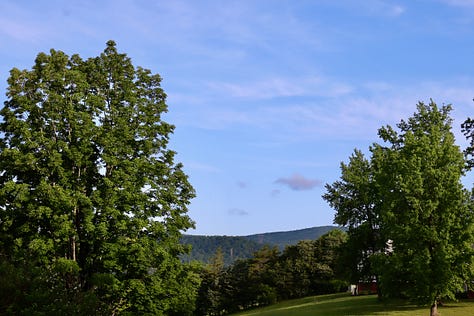
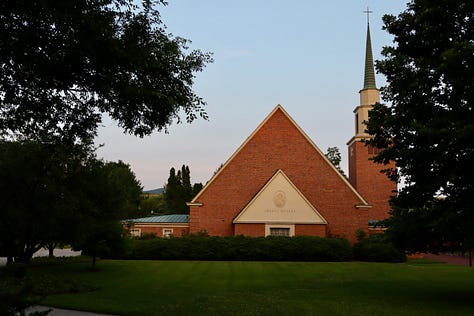
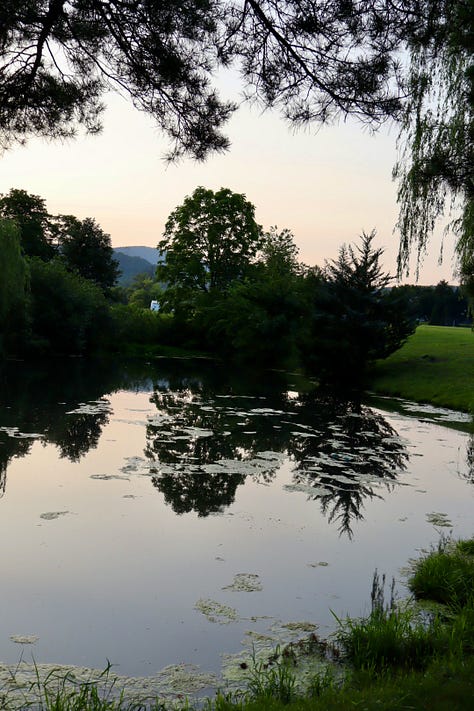
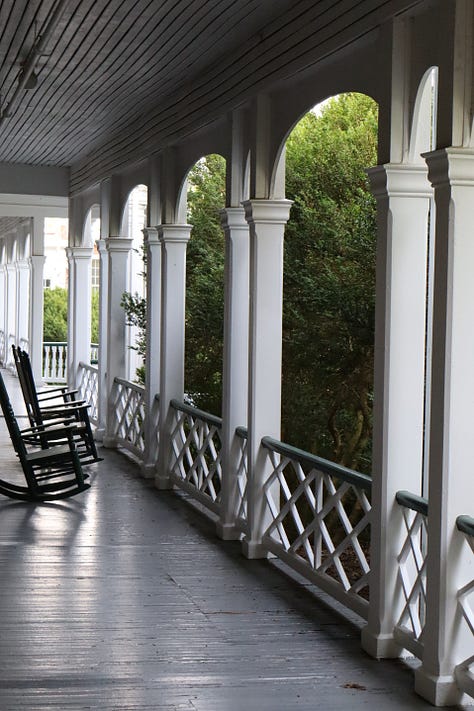

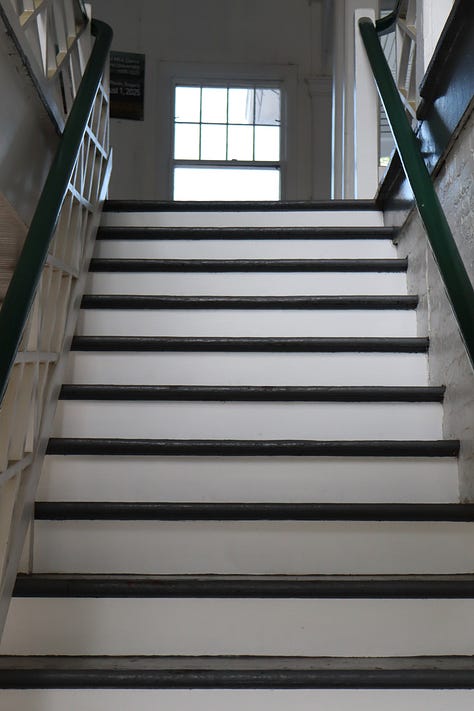
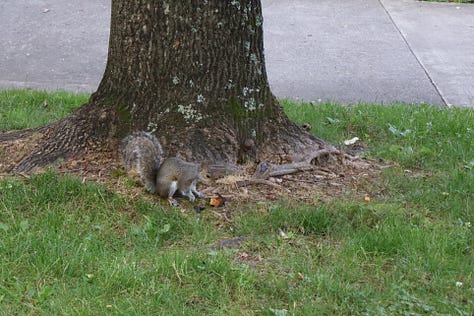
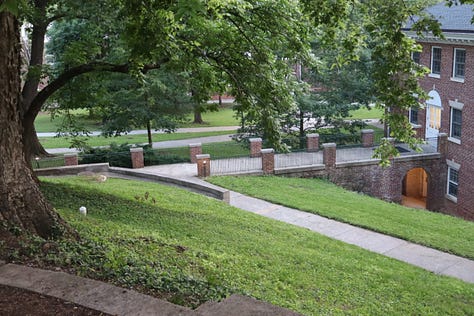
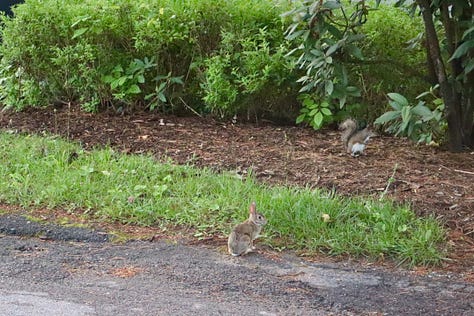
Rural Reflections
By Ruth Dennis
RAIN—Sometimes we welcome it. Sometimes we are like the children who chant, “rain, rain go away, come out again some other day.”
In the spring there is something so refreshing about rain. In the morning after an overnight shower, every plant, every tree, every rock glistens with a newly washed sparkle. I delight in such a morning as I stand on my back porch and mentally drink in all of the freshness.
Rain in the summer refreshes a parched soil. Almost before the rain ceases, you can see the flowers, the field crops, the garden vegetables and the lawns grow. It is almost written in stone that after a rain in the summer the lawn mowers are started up.
Rain in the fall is different. It usually is cold and often presages the snow and colder weather to follow. Rain accompanied by wind brings the brightly colored leaves tumbling to the ground, baring the trees to stand stark and unclothed until the following spring.
Rain in the winter is dark and threatening. Even a slight drop in temperature turns it into sleet and freezing rain. Driving becomes hazardous, and weather seems to be almost an enemy to be faced.
On the farm, I quickly learned how important rain is to the sequence of farming. Once a crop is planted, rain is needed for germination and growth. Too much rain can slow growth throughout the growing season. For the beef cattle, too much rain in the spring turned the barnyard into a quagmire. The pregnant cows were deep in mud and moved much slower. The baby calves were more susceptible to dysentery. We looked forward each morning to a dry sunny day.
From spring to fall, weather forecasts were listened for (in those pre-TV days) and the barometer read at least twice a day as farm plans were outlined. We also depended on some of the old-time weather sayings. I learned what really was meant by “sailor take warning” if there were a red sky in the morning.
My husband with his years of experience learned how to relate the weather forecasts and other information to our particular comer of the Appalachian Southern Tier; how to evaluate the cloud patterns, and often was able to get one more load of hay in the barn before the rains came.
In addition to farming patterns, as our life style changed, we found rain was a part of our camping experiences. How many of those first camping weekends did we set up on Friday night just in time for a weekend of rain—rain that would end late Sunday as we were breaking camp. The patter of rain on the metal roof of the trailer became a familiar pattern of sound, one that we learned to accept as part of camping. The sound was the same whether we were in the national park in Maine, a private campground in Virginia, or in a state park in New York. We learned there were many “rainy day” things to do no matter where we were. We could explore antique shops in the nearby towns, we could find a mall with a movie, or we could even curl up on the trailer couch and enjoy the luxury of an uninterrupted afternoon of reading.
Rain—I think back to the summers when it rained for days on end. Field work came to a standstill. Knives for the mowing machine were sharpened, calf pens were cleaned, the baler was greased. After a day or two, everyone was “edgy” and even the younger boys were ready to welcome a return to the hayfields.
Rain—Gene Kelly danced in it (in “Singing in the Rain”). Vocalists have many songs about rain. Small children love to play in the summer rains. This mother has even been known to take off shoes and socks and play with the little ones in the gentle rain, reveling in the sound and sight sensations.
Rain—can and often means a rainbow. What an exhilarating sight that can be. Not only are the sheer beauty of the hues and the expanse of the arch of color experienced. Once again there is the promise in the sight of a rainbow—perhaps not of a “pot of gold at its end” but of the Biblical sense given to Noah.
-----
Dennis of Jasper is a columnist for The Spectator.
Thankfully I already have an appointment for the other foot on Monday. Lucky doctor—she gets two feet for the price of one.



